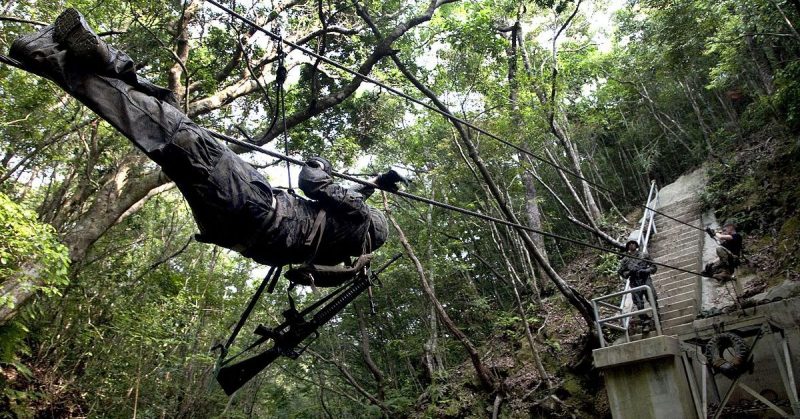This month, the US military is returning over 9,800 acres of land to the Japanese government. The US has held the land since the end of World War II.
9,852 acres of land on Okinawa are part of a territory known as the Northern Training Area. It’s located in a US military base complex on the Japanese island located 960 miles (1,550 kilometers) southwest of Tokyo.
The US took control of Okinawa after World War II and returned most of it to the Japanese in 1972.
This latest return of land is the largest since that time.
The Japanese government has agreed to build six helicopter landing zones and some access roads. These improvements will allow US troops to train in the area according to a senior US defense official.
The US military is thought to be in charge of administering the area, used for jungle warfare training.
The US and Japan have been negotiating the turnover of the land since the 1990s.
The handover is expected to happen on December 21 and 22. There will be an event at that time, with Ambassador Caroline Kennedy and Lt. Gen. Jerry Martinez, the commander of US Forces Japan.
Secretary of Defense Ash Carter was on hand for the announcement of the turnover with Japanese Prime Minister Shinzo Abe. Carter is in Japan to calm fears that President-elect Donald Trump will back away from the security alliance between the two countries.
There are more than 52,000 US troops in Japan. There are more than 100,000 Americans in the country when you add civilian personnel, contractors, and dependents.
About half of those troops are stationed in Okinawa. Relations between the Okinawa citizens and the US military have deteriorated following a string of incidents involving people from the American bases there.
During a protest in June involving over 60,000 people in Naha, the capital of Okinawa, the governor of the island, Takeshi Onaga, promised to strongly advise the Japanese government to move all US bases off the island, CNN Politics reported.
“The government should know that the anger of the people in Okinawa is almost reaching a limit and it is not right to sacrifice Okinawa people for military bases anymore,” he said.
